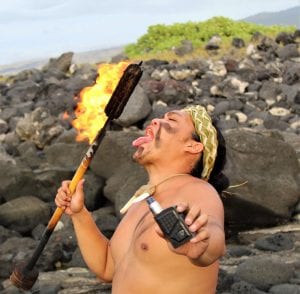
Having survived a rollercoaster legislative session that saw the bill near death on multiple occasions, Hawaii’s ban on flavored e-cigarettes now land’s on the governor’s desk. Many industry experts say he may veto the controversial legislation.
The ban, which takes effect after the new year, outlaws the sale of nearly all flavored tobacco products in Hawaii stores, including menthol cigarettes and flavored cigars, according to Civil Beat. The primary target of the measure, however, are flavored e-cigarettes most popular with middle and high school students.
After a contentious debate Tuesday, House Bill 1570 passed its final reading in the state House of Representatives with 36 voting in favor and 15 in opposition, reflecting division among public health advocates and other supporters who turned their backs on the measure they helped write.
At issue was a Senate amendment that would exempt from the ban certain tobacco products that had received federal Food and Drug Administration approval.
It is a major loss for Hawaii’s legal vaping industry, which has campaigned vigorously against a prohibition on the products that form their livelihood.
“[About] 99.9 percent of everything that our industry sells to adult consumers, legally with age verification, is flavored products,” said Scott Rasak, chief operating officer of Volcano, a vape shop chain with 16 locations across the state. “We’re talking about hundreds of businesses, thousands of jobs.”
Vape shop owners argue that a tobacco ban will force kids onto the black market. Public health activists, however, have long advocated for cutting flavored vapes off at the source.
Hawaii’s vaping industry will challenge the ban’s legality in court, Volcano’s Rasak vowed.
The bill might also receive pushback from Gov. David Ige, who introduced a similar flavor ban to the Senate this year but has yet to reveal his stance on HB 1570 in its current form.
“I think that the governor might veto the bill,” Matayoshi said in an interview after the vote. “It really depends on the census of the (public health) community.”

